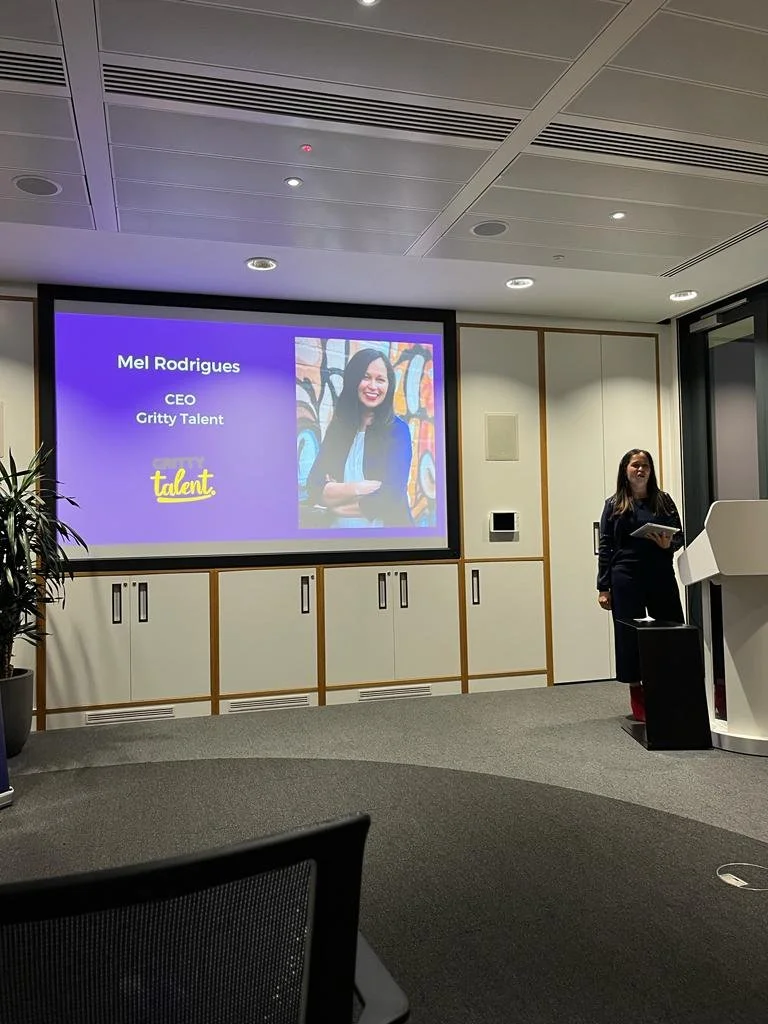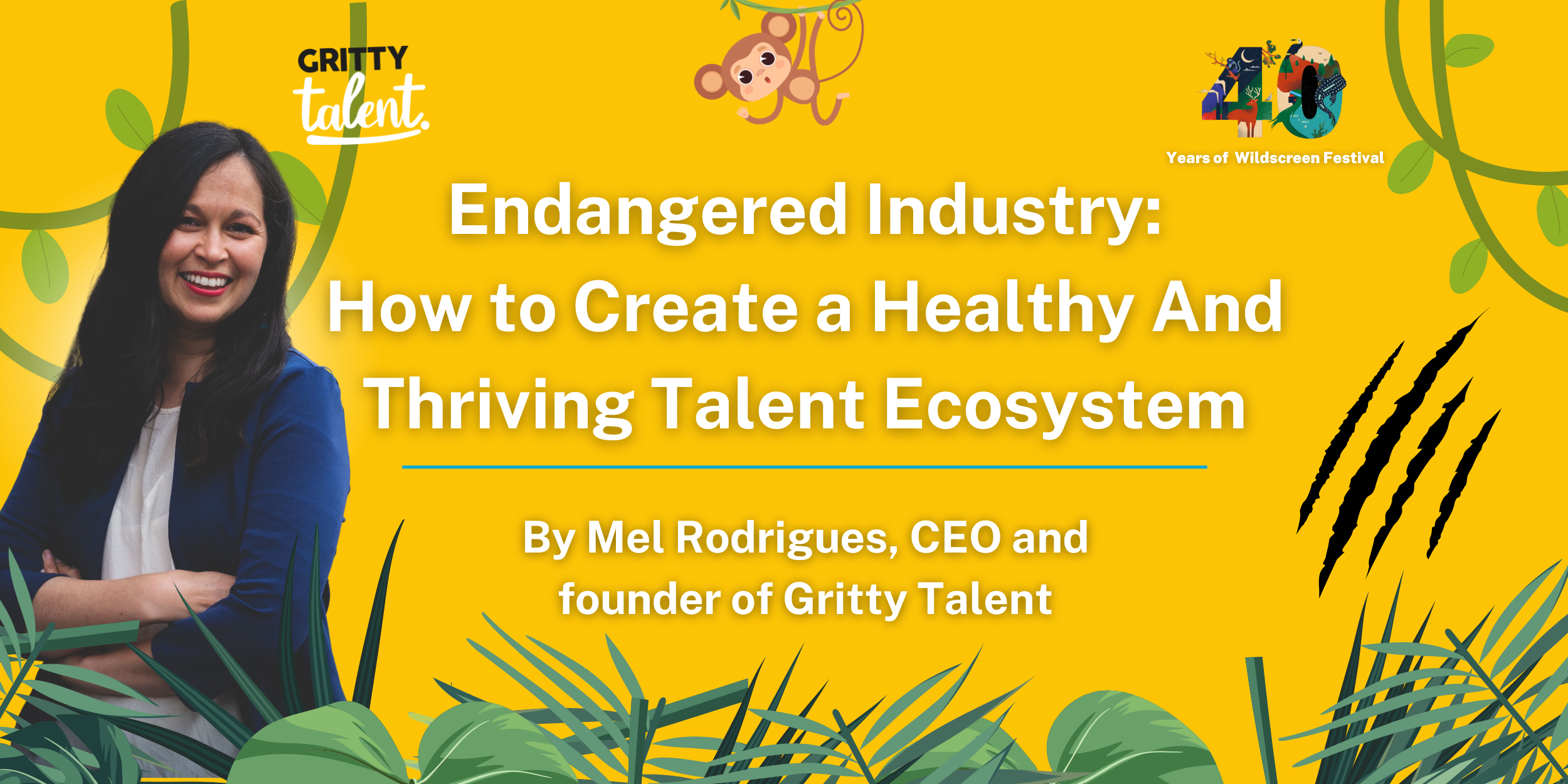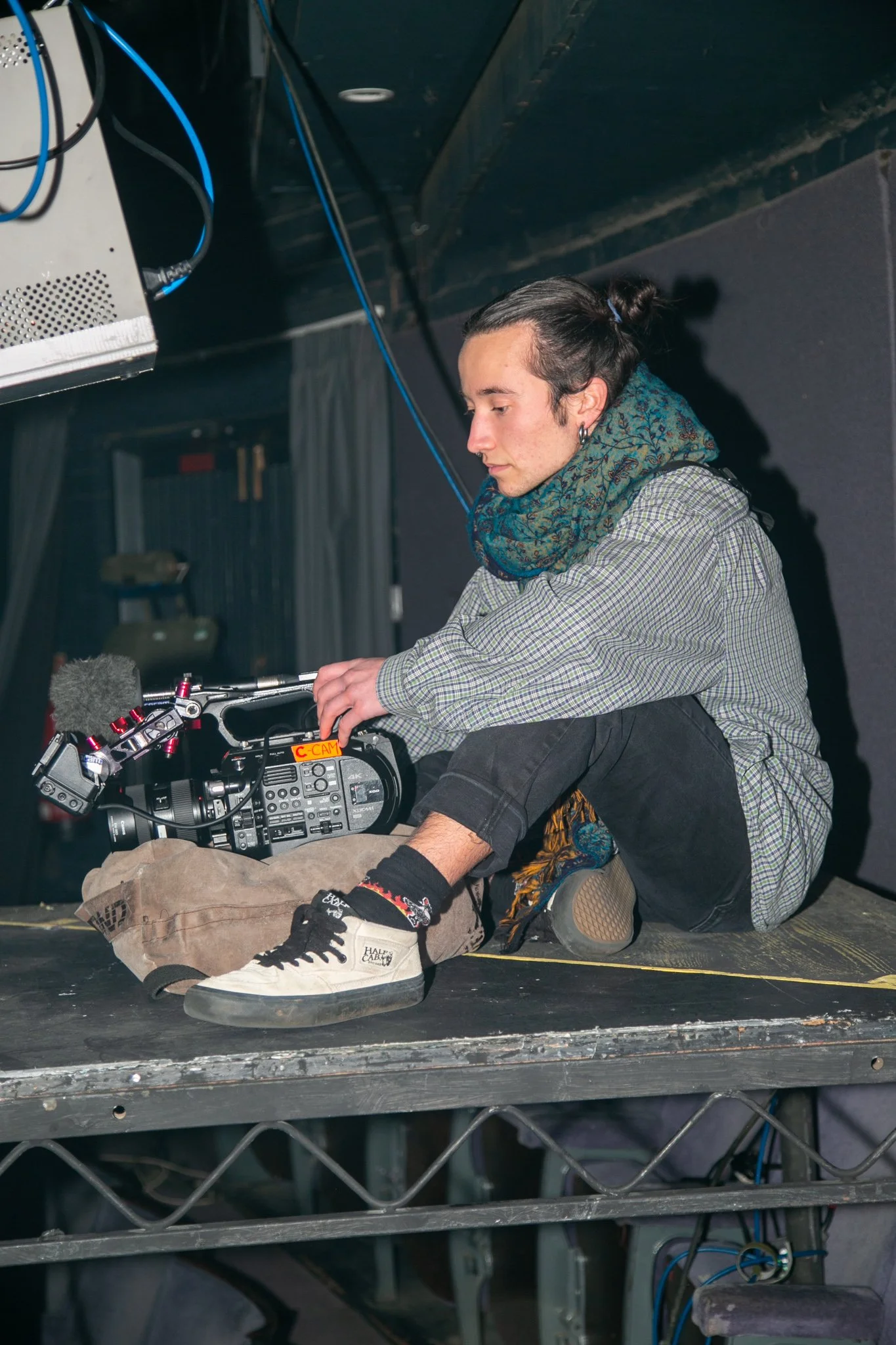
Blog
Why AI needs creatives- not the other way around
“From the rise of ‘large language models’ (LLM’s) such as ChatGPT and image generators like DALL-E and Mid Journey, through to controversial deep fake technologies - generative AI is more advanced, more versatile and more accessible than ever before. Creatives at all career levels and across disciplines have a complex, exciting and at times intimidating new toolkit to play with.”
The Cultural Capital You Need to Start a Business
Delivering this keynote at SETSquared's Enterprising Women 3.0 showcase, Gritty Talent founder and CEO Mel Rodrigues (an alumni of Enterprising Women 1.0) shared her learnings from the last three years of growing her business from start up to scale up.
Mel highlighted the importance of growing your ‘cultural capital’ as aspiring entrepreneurs as much as you might grow your funding streams or IP. She argues that learning to embrace fear and imperfection, fostering collaboration, and investing time to reflect and reboot are essential ingredients for all founders - and especially for women and founders from under-represented groups, who often face a number of unique challenges and blocks to starting a business.
TV’s back to school assignment this autumn: rebuild the talent pipeline
As the TV Industry battles to regain its fleeting audiences, keep hold of world class talent and evolve with the times, it is more imperative than ever before that we start to invest in the talent of tomorrow - our future depends on it.
Edinburgh TV Festival - a crisis summit to steer us out of trouble?
Edinburgh TV Festival is here and we’re excited to see the programme unfold. Away from the stage, it’s the place where relationships are forged, careers are progressed, commissions are green-lit and the tone for the year ahead is set. The conversations that happen in Edinburgh can and will shape the future of the industry. This must also therefore be the moment to address the elephant in the auditorium…
Be You Festival 2023: top takeaways for talent
Be You Festival from Soho Media Club brought together a host of industry figures, leaders and talent who engaged in some fantastic critical conversations around diversity and inclusion in the TV industry, as well as sharing their valuable insights with the audience.
We wanted to share some of that treasure with you, so here are some of our top takeaways for talent from industry figures like Sir Lenny Henry, Jasmine Dotiwala and Mobeen Azhar
Diamond Data 6th Cut: why have we not made better progress?
Six years on, the sad fact is that we’ve made slow progress in the TV Industry when it comes to diversity and representation - especially in off-screen jobs. So what’s going on? Let’s take a closer look at the Diamond Data 6th Cut report…
We Need More Colour in Wildlife TV
‘Wildlife Television is…complex. Vast. Powerful. It made me want to be what I am. But it is through the erasure I speak of in this blog, that we find those represented in the industry are mostly only those who have had the opportunity to develop, network and finance their way in. Opportunities that just aren’t available to the masses.
By accepting a system that drives out anyone that do not have the privilege to reach its sunny peaks, our complacency is losing us beautiful, passionate minds with intersectional and diverse stories who can contribute immeasurably to creating an equitable, protected and sustained planet.’
Grants, Bursaries & Funding Opportunities for TV Talent
Getting into TV, Film or any creative industry can be expensive and we know that not everyone has the same access to opportunity. With that in mind, we’ve compiled a list of financial grants, bursaries and funding opportunities that you can apply to to help give you the financial push you need to get your career on the right track!
Offering everything from a couple hundred pounds to thousands, most of these grants are actively encouraging applications from those from less advantaged and under-represented backgrounds.
Reading Between The Lines: data and under-representation in TV
Despite having more data available than ever before, understanding the make-up of the UK TV sector’s workforce is actually still quite difficult. In this blog, we look at why that is and the changes we can make to improve the way we collect and perceive the available data.
Socio-economic background: what is it and why does it matter in TV jobs?
When you think about diversity and inclusion - the chances are that ethnicity, gender, sexual orientation and disability are at the forefront of your mind when it comes to representation on and off screen.
However, there is an intersecting factor yet to be truly examined and acted on which also significantly affects someone’s circumstances, opportunities and chances of making it in this industry: socio-economic background.
“Where are you really from?”- The hidden bias in questions we ask our colleagues
Businesses thrive when everyone in the workplace is equally included, respected and valued. It’s not just a nice-to-have - it's a business imperative to have a well-functioning team where everyone can turn up and do their best work, regardless of their protected characteristics and without anxiety related to how their identity will be perceived.
When your origins are publicly questioned in an otherwise homogeneous environment, it implicitly affirms to everyone in the conversation that you are a guest of sorts; that you don’t belong here like they do. This is the opposite of inclusion.
The Price of Burn-Out: how do we start to shift the culture of over-working In TV?
Burnout, mental exhaustion and chronic stress are sweeping through the UK TV Industry workforce. In March 2023, an anonymous open letter to all UK broadcasters and production companies began to circulate on social media; calling for a set of clauses to be put in place to better support freelancers - the group that often bear the brunt of overtime, budget cuts and tight deadlines.
It’s clear from the letter, and recent findings from The Looking Glass report ‘22 and The Time Project that an intervention is needed that goes further than the occasional lieu days or tips on resilience and wellbeing.
What will it take to make our workplaces truly inclusive of disabled people?
‘The road to meaningful disability inclusion at work feels like a long and bumpy one. Despite 83% of all acquired disabilities occurring in the workplace, the world of employment still struggles to open its doors fully to our working disabled population.’ - As our #DisabilityUnfiltered campaign draws to a close, Gritty Talent’s Remi Brand explores disability and employment in the UK TV industry, and the ways we can remove barriers to participation for the disabled workforce.
I yawn a lot, don’t take it personally: MS, TV and me
‘When I was diagnosed with Multiple Sclerosis in 2011 it was a shock, to say the least. After three bouts of vision loss, one whilst working on the studio floor of The One Show, I was called into Moorfields eye hospital and given the hammer blow - I had relapse and remitting MS and it’s incurable…’ - Vicki Lines-Gibbs, Creative Director at Gritty Talent shares her experience of re-calibrating her successful career in TV following a life-changing diagnosis of MS.
Me, TV and Reframing Disability as a Positive Identity
‘As a person who works in the UK media and who identifies as disabled, I am filled with optimism and belief that now is the time for big change - and we are seeing signs that it is happening.’ - Gritty Talent founder Mel Rodrigues explores her evolving understanding of disability, and how it has affected and shaped her career.
Black History Month: Words and Deeds Matter
It’s been almost a year since Birmingham City University published Marcus Ryder’s BBC-commissioned report into media use of the term ‘BAME’. Despite clear indications that the term is inadequate to use, it is yet to be widely abandoned by the media industry. Until that happens, can we really expect the term to fall out of use by the general public?
Endangered Industry: How to Create a Healthy And Thriving Talent Ecosystem
Our founder Mel Rodrigues produced and presented the opening session at Wildscreen Festival 2022, calling on the international wildlife filmmaking industry to protect and nurture its talent pipeline . Read her keynote talk here from the ‘Endangered Industry’ session that commenced the week-long festival.




















